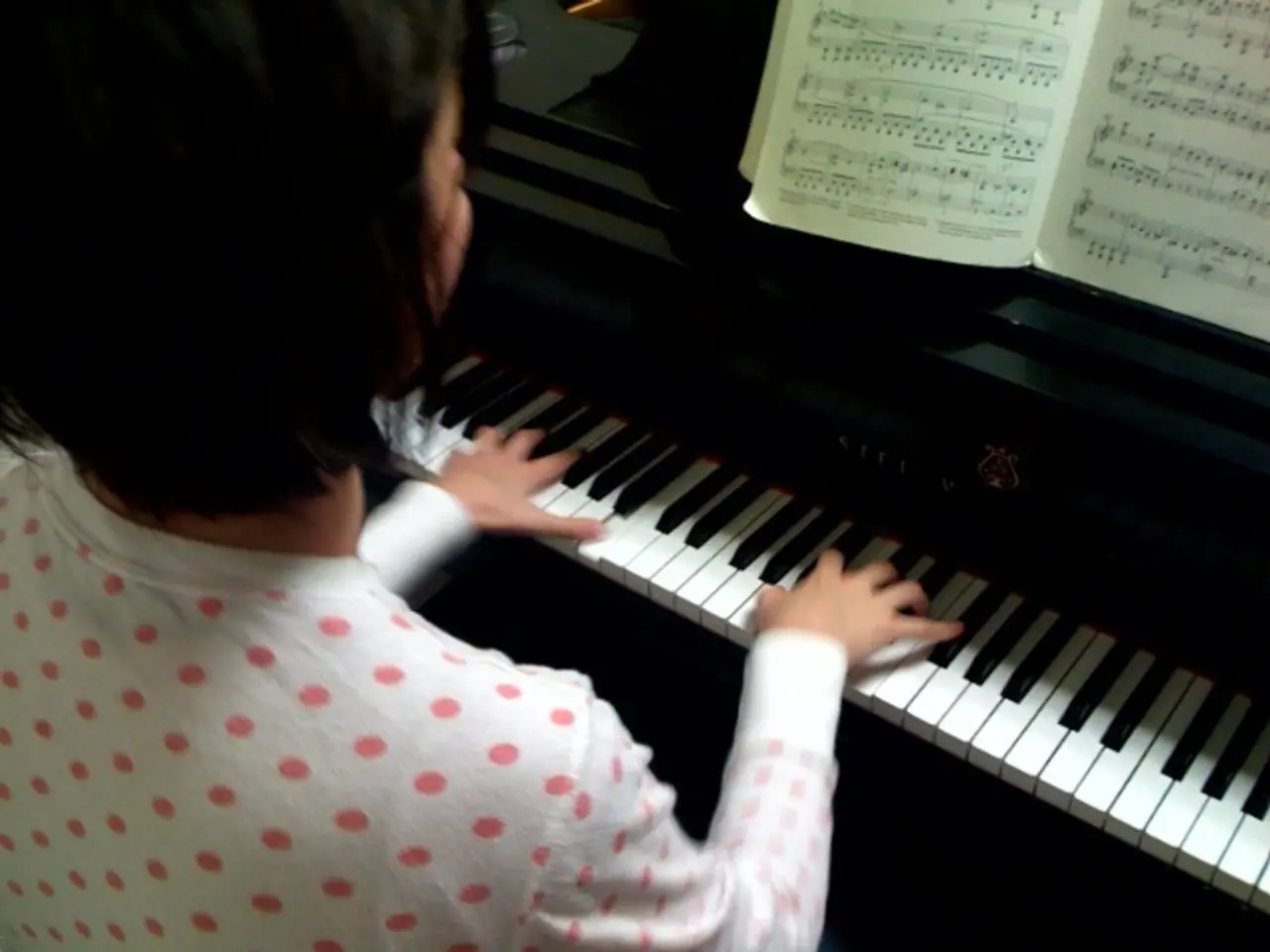Debating the merits of ABRSM versus Trinity for musical education?
In the world of music education, two names stand out – the Associated Board of the Royal Schools of Music (ABRSM) and Trinity College London. Both organisations offer graded music exams, each with its unique approach to musical education, technical skills, repertoire, and supporting tests.
ABRSM, an acronym for Associate Board of the Royal Schools of Music, is traditionally more theory-driven and classically oriented. It emphasises a structured progression through grades with clear theory prerequisites, focusing on essential musical ingredients such as pitch, time, tone, shape, and performance. Technical skills are assessed through scales, arpeggios, and sight-reading aligned with these criteria.
On the other hand, Trinity College London, a prestigious institution with roots dating back to 1877, offers a more eclectic mix of repertoire. It places a greater emphasis on expressive playing and musicality through its technical exercises. Trinity focuses more on musical development and creativity rather than technique and theory knowledge.
The repertoire choices of ABRSM cover a wide range of classical music styles with detailed guidance on metronome marks, phrasing, dynamics, and ornamentation to cultivate stylistic awareness. The emphasis is on accurate musical decision-making and adherence to composer styles across different periods. Trinity's syllabus, however, often incorporates more contemporary works and genres, encouraging personal interpretation and musical expression across various styles, which may include more modern or popular music influences.
ABRSM requires more Arpeggios, including first and second inversions in Grade 7 and 8, while Trinity's technical requirements include three short exercises to develop technique alongside musicality. In terms of supporting tests, ABRSM requires passing a Grade 5 music theory exam as a prerequisite for higher practical grades, while Trinity offers multiple supporting qualifications like musicianship exams and graded theory, which are integrated with performance skills to support holistic musical development.
Trinity has launched Digital Grades and Diplomas, offering online performance submission, and continues to diversify its repertoire and syllabus options, including electronic music and popular music tracks. ABRSM has integrated digital resources and online learning platforms for exam preparation and has introduced Performance Grades, focusing solely on the performance of four pieces.
In summary, ABRSM exams are traditionally more theory-driven and classically oriented with specific technical and musical criteria, while Trinity exams provide a broader stylistic scope with a focus on personal interpretation and varied musical genres, supported by flexible practical and theory assessments. This synthesis is based on available evaluations of ABRSM’s structured criteria and theory requirements contrasted with Trinity’s varied approach to repertoire and performance styles.
Both ABRSM and Trinity music exams offer a wealth of opportunities for musicians of all ages and levels to develop their skills, explore various musical styles, and gain recognised accreditation. With over 600,000 students taking ABRSM music exams every year in over 93 countries, it's clear that these exam boards continue to play a significant role in the global music community.
- A beginner pursuing music education might find the Associated Board of the Royal Schools of Music (ABRSM) beneficial, as it follows a structured progression with clear prerequisites in music theory.
- Piano lessons under the ABRSM curriculum will focus on essential musical elements such as sight reading, pitch, time, tone, and performance to nurture foundational technical skills.
- For those seeking a broader stylistic approach, Trinity College London provides an eclectic mix of repertoire that includes contemporary works, encouraging personal interpretation and music expression across various genres.
- Music education and self-development through Trinity College London will involve mastering technical exercises meant to foster expressive playing and musicality rather than solely focusing on technique and theory.
- Learning music under either of these reputable institutions will not only help in acquiring entertainment and educational value but also provide accredited recognition in the global music community.




